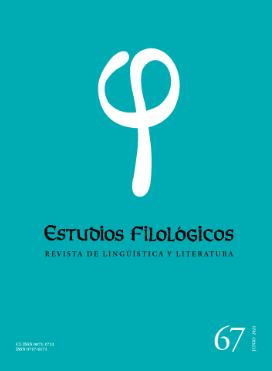The animal’s languages. Fables of poverty and precarious life
Main Article Content
Abstract
This essay aims to inquire about the literary representation of the animal and the political imagination nowadays, as the “human life” paradigm represents a biopolitical boundary that states which lives deserve such status and which lives are left out of such symbolic and legal recognition. Starting with “Yzur” (1096) by Leopoldo Lugones, the essay shows how this “anthropological machine” works, which in its capture of the living imposes a logic of domination and exploitation. In contrast, it presents the short story “Como un león” (1967) by Haroldo Conti, the collection of poems El duelo (2010) by Igor Barreto and “Hambre perra” (2009) by Lina Meruane as fictional spaces where the figure of the animal is not presented as the opposite of the human one but as a variation that blurs its boundaries and suspends the established biopolitical order of the distribution of the bodies.

